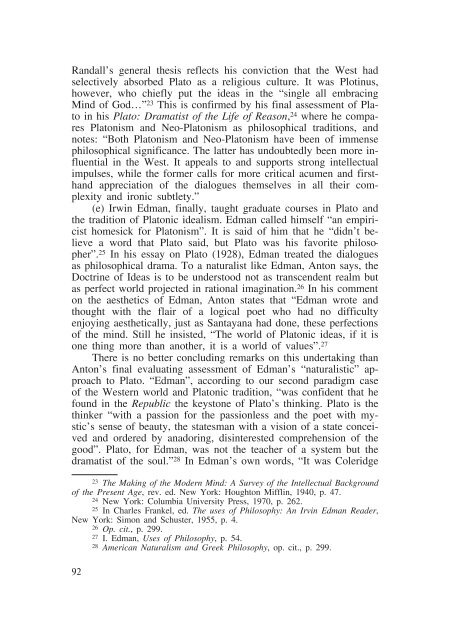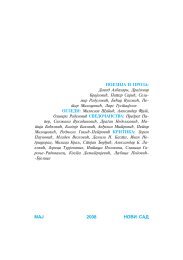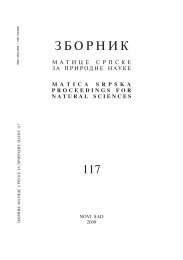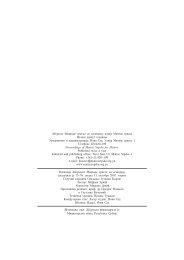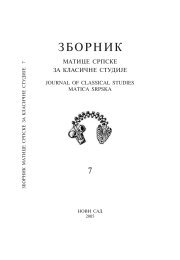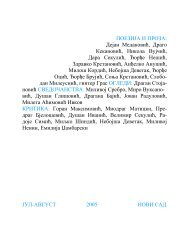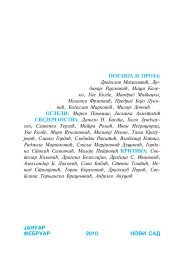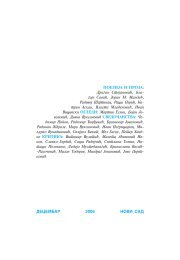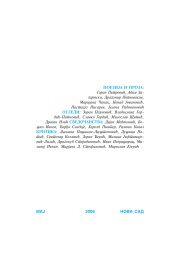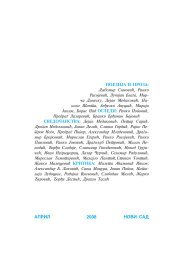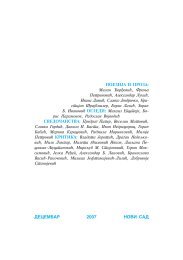You also want an ePaper? Increase the reach of your titles
YUMPU automatically turns print PDFs into web optimized ePapers that Google loves.
Randall's general thesis reflects his conviction that the West had<br />
selectively absorbed Plato as a religious culture. It was Plotinus,<br />
however, who chiefly put the ideas in the “single all embracing<br />
Mind of God…" 23 This is confirmed by his final assessment of Plato<br />
in his Plato: Dramatist of the Life of Reason, 24 where he compares<br />
Platonism and Neo-Platonism as philosophical traditions, and<br />
notes: “Both Platonism and Neo-Platonism have been of immense<br />
philosophical significance. The latter has undoubtedly been more influential<br />
in the West. It appeals to and supports strong intellectual<br />
impulses, while the former calls for more critical acumen and firsthand<br />
appreciation of the dialogues themselves in all their complexity<br />
and ironic subtlety."<br />
(e) Irwin Edman, finally, taught graduate courses in Plato and<br />
the tradition of Platonic idealism. Edman called himself “an empiricist<br />
homesick for Platonism". It is said of him that he “didn't believe<br />
a word that Plato said, but Plato was his favorite philosopher".<br />
25 In his essay on Plato (1928), Edman treated the dialogues<br />
as philosophical drama. To a naturalist like Edman, Anton says, the<br />
Doctrine of Ideas is to be understood not as transcendent realm but<br />
as perfect world projected in rational imagination. 26 In his comment<br />
on the aesthetics of Edman, Anton states that “Edman wrote and<br />
thought with the flair of a logical poet who had no difficulty<br />
enjoying aesthetically, just as Santayana had done, these perfections<br />
of the mind. Still he insisted, “The world of Platonic ideas, if it is<br />
one thing more than another, it is a world of values". 27<br />
There is no better concluding remarks on this undertaking than<br />
Anton's final evaluating assessment of Edman's “naturalistic" approach<br />
to Plato. “Edman", according to our second paradigm case<br />
of the Western world and Platonic tradition, “was confident that he<br />
found in the Republic the keystone of Plato's thinking. Plato is the<br />
thinker “with a passion for the passionless and the poet with mystic's<br />
sense of beauty, the statesman with a vision of a state conceived<br />
and ordered by anadoring, disinterested comprehension of the<br />
good". Plato, for Edman, was not the teacher of a system but the<br />
dramatist of the soul." 28 In Edman's own words, “It was Coleridge<br />
23 The Making of the Modern Mind: A Survey of the Intellectual Background<br />
of the Present Age, rev. ed. New York: Houghton Mifflin, 1940, p. 47.<br />
24 New York: Columbia University Press, 1970, p. 262.<br />
25 In Charles Frankel, ed. The uses of Philosophy: An Irvin Edman Reader,<br />
New York: Simon and Schuster, 1955, p. 4.<br />
26 Op. cit., p. 299.<br />
27 I. Edman, Uses of Philosophy, p. 54.<br />
28 American Naturalism and Greek Philosophy, op. cit., p. 299.<br />
92


